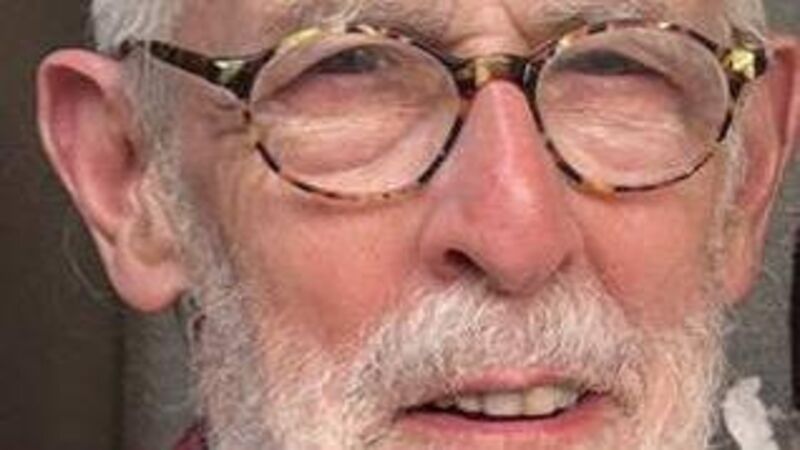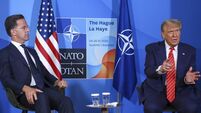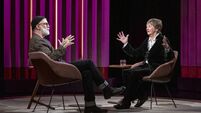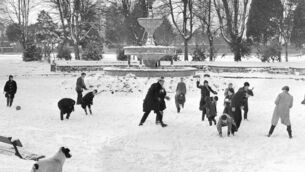Reflecting on our neutrality and future of defence

John Maguire is Professor Emeritus of Sociology at University College Cork.
THE Consultative Forum on International Security Policy runs from June 22 to June 27, at a time of heightened conflict around the world. The Government say their Forum will help us, the people, to catch up on recent changes. Tánaiste Micheál Martin has gone so far as to suggest that joining NATO’s nuclear alliance wouldn’t need a referendum.
How times have changed! In 1986 the Supreme Court saw even the Single European Act, with its blandly titled ‘European Political Cooperation’, as a momentous step, requiring the Irish people’s sovereign authorisation in a referendum. Some of us argued then that the SEA would land us precisely into our current dilemmas, and in 1992 Cork solicitor Joe Noonan and I tracked the process further in our booklet Maastricht and Neutrality.
In 1995 the Government, preparing a White Paper on Foreign Policy, held a Seminar in UCC with invited experts, including Erskine Childers III. Childers, son of our fourth President, and grandson of the writer executed in the Civil War in 1922, drew on a lifetime’s UN service to address ‘The Changing Role of the United Nations’.
He encouraged the Irish Government to revive a global perspective, something already fading from their increasing concern with acceptance by the big guns of the West. He based his address on the book Challenges to the United Nations, which he had recently edited.
It was an electrifying critique of the processes undermining the UN’s capacities.
‘A handful of governments’ had disenfranchised and constrained that body, usurping its authority on world development and peace, imposing economic policies which were ‘a veritable prescription for war’. The UN was thus confined to perpetual damage-limitation, with depleted resources and authority for resolving crises, let alone forestalling them.
Rather than join those who shed crocodile tears over an alleged ‘failure of the UN’ which they both aggravated and exploited, he insisted it must be radically revamped – or, more precisely, restored to its mandate ‘to save succeeding generations from the scourge of war… and to promote social progress and better standards of life in larger freedom’ (UN Charter, Preamble).
I recall being deeply moved – emotionally and literally. After the session, I pursued him down the stone corridors to thank him. He courteously thanked me in turn, shook my hand – and gave me his own text. An unforgettable encounter, and sadly the only one: the following year he died, like his father the President, prematurely and suddenly.
His message has equal or greater relevance today, but he would surely be dismayed at how our policymakers, having sought his advice, then systematically ignored it. He would have been deeply saddened at the realisation of his fear that the crises of 1990-95 would be ‘only the mere first tremors in a progressive international convulsion’.
He could hardly miss how eerily the undermining of the UN has been mirrored in our domestic policy process. We the people are being told we’re out of touch with ‘realities’ imposed by authorities whose powers actually derive from us, under Article 6 of our neglected Charter, Bunreacht na hÉireann.
This abusive process of amnesia and neglect continues in the latest Government exercise: even the originally envisaged Citizens’ Assembly has been boiled down to a ‘Consultative Forum’.
The dictionaries define ‘forum’ as properly a two-way exchange rather than a one-way process. Moreover, who is ‘consulting’ whom?
All this vagueness means that nothing definite need be reported back to Tánaiste Martin, who in turn, according to the Forum website, ‘will decide whether to bring recommendations to Government’. No need for a veto when awkward questions don’t even arise: yet another failure to engage meaningfully with us, the people.
Setting the agenda is a key aspect of power: the questions shape the possible answers. Even in our wealthy society, we see how hard it is for basic human needs to penetrate the neoliberal orthodoxy. Our development workers and NGOs daily experience how worldwide want and suffering are suppressed by that same orthodoxy, and its military-industrial wing.
The ‘Triple Lock’ requires UN authority before our forces operate abroad – as the UN Charter requires. Why are our Government so bent on smashing that lock, so as to walk even further away from the Charter?
Why not unpick the lock that Erskine Childers III told us the ‘handful of governments’ hold over the UN itself?
The Security Council, he insisted, ‘must be totally overhauled, and the absurdly archaic permanent memberships and veto powers… abolished once and for all.’ Rather than being ‘seduced into this reliquary cabal’, Ireland and other member states should promote democratic reforms, including a totally new Council on Diversity, Representation, and Governance.
This, he told us, could serve as ‘the world’s open think-tank and source of wise counsel’, for example channelling ‘the aspirations of hundreds of millions’ for something more appropriate than ‘traditionally conceived nation-state sovereignty.’ There was so much ‘wise counsel’ in Mr Childers’s brief text, which I’ve treasured ever since. He might courteously suggest: ‘Treasure it? Why not use it?’, recalling Joe Hill’s famous message: don’t just mourn, organise!
We could begin by recovering our nerve as citizens, with a critical perspective on the Government’s latest scheme.
Afri’s booklet, A Force for Good? Reflections on Neutrality and the Future of Irish Defence, which will be launched online on Tuesday, June 20, is an attempt to regain such a perspective.
John Maguire is Professor Emeritus of Sociology at University College Cork. He will speak at Afri’s upcoming online event, ‘A force for Good? Neutrality or NATO’ on Tuesday 20th at 11am. Register at www.afri.ie.







 App?
App?




